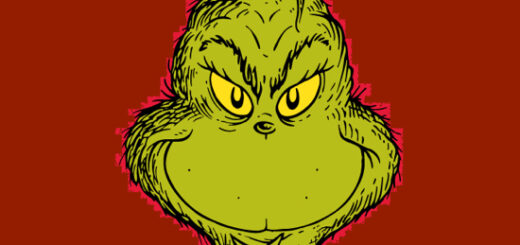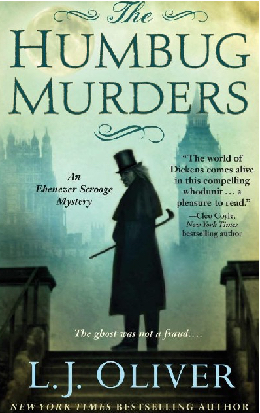John Ostrander: Christmas Anti-Heroes
T’is the season for Christmas related columns, fa-la-la-la-etc. I could write about Star Wars: The Force Awakens but that came out Friday so now it’s old hat and, besides, I haven’t seen it yet and, given the crowds, may not be able to see it until after the first of the year so let’s talk about something else, shaaaaall we?
Christmas is a time of peace, love, and goodwill to all unless you’re doing last minute shopping, running from store to store, and in a life and death struggle with some other harried shopper for the last iteration of a particular item that you both must have. So why is it that, aside from Baby Jesus of course, the most identifiable characters connected with the day are anti-heroes – the Grinch, Ebenezer Scrooge, and Mr. Potter (from It’s a Wonderful Life)?
Anti-heroes are what we used to call outright villains until it was found that we may identify with them more than perhaps we should. They’re bad guys who have a hint of good guy in them and these days we may sympathize with them more than the erstwhile heroes of the stories that they are in. They’re usually the most interesting and usually have the best lines.
Take the Grinch, for example, especially the Grinch found in the Chuck Jones directed and Boris Karloff voiced cartoon. He even has a song about how bad he is. Some of my favorite lyrics in it go: “You’re a foul one, Mr. Grinch! You’re a nasty, wasty skunk! Your heart is full of unwashed socks. Your soul is full of gunk, Mr. Grinch!” Admit it. You now have the whole song running through your head. Merry Christmas.
The Grinch lives up the mountain with his dog Max, but is assaulted by the noise coming from Who-ville every Christmas and it is driving him just bat-shit crazy. So he hatches his evil plan: he’ll dress up like Sanity Claus and steal every present from the Whos and every scrap of food including the last can of Who-Hash. (That particular delicacy always troubled me; it implies that the hash is made up of ground up Whos which suggests that the village is a town of cannibals which might make them more interesting than they otherwise appear.)
Instead of tears, the Grinch hears a song of joy from the Whos on Christmas Day. Xmas came all the same. So he has a change of heart (it grew three sizes that day) and returns everything and even joins them for dinner, slicing the roast beast.
The change suggests a desire to change, deep down. Let’s be honest though – the Grinch is funnier and more interesting before his change.
And then there’s Ebenezer Scrooge from Dickens’ A Christmas Carol and the Grinch’s literary grandfather. Dickens describes him as “a squeezing, wrenching, grasping, scraping, clutching, covetous old sinner! Hard and sharp as flint, from which no steel had ever struck out generous fire; secret, and self-contained, and solitary as an oyster.” His very name is a synonym for miser (look it up). When Carl Barks was looking for a name for Donald Duck’s rich and miserly uncle, what else would suit but the name Scrooge?
Ebenezer is a gold mine for bad Christmas attitude. Dickens says of him “To edge his way along the crowded paths of life, warning all human sympathy to keep its distance, was what the knowing ones call nuts to Scrooge.” Scrooge is famous for his “Bah! Humbug!” attitude on the season. Early on, he declares: “Out upon merry Christmas. What’s Christmas time to you but a time for paying bills without money; a time for finding yourself a year older, but not an hour richer; a time for balancing your books and having every item in ’em through a round dozen of months presented dead against you? If I could work my will, every idiot who goes about with “Merry Christmas” on his lips, should be boiled with his own pudding, and buried with a stake of holly through his heart.”
When Scrooge is asked for money to help the poor, he says they should go to the poorhouse since that is what he pays his taxes for. Told that many would rather die than go there, Scrooge snaps, “If they would rather die, they had better do it, and decrease the surplus population.” Oh, that’s cold.
Scrooge, however, saw himself as simply a good man of business and I suspect many on the Right today would see him as the put-upon hero of the story, just another entrepreneur trying to make his way past all those grasping freeloaders with their hands out.
Scrooge gets visited by four ghosts (including his dead partner, Jacob Marley) and, of course, gets reformed. By the end he vows, “I will honour Christmas in my heart, and try to keep it all the year.” Still, there’s enough of the old devil in him to play a rather mean trick on his clerk, Bob Cratchit, on the following day. Thank goodness.
That leaves us, then, with Mr. Potter of It’s A Wonderful Life. Let’s be honest; there’s nothing redeeming about him. He is a miserable old miser like Scrooge; of him it can be sung that he’s a mean one. He has the best – or worst – of the Grinch and Scrooge in him.
Here’s a sample of some his best line and worst attitudes: “I am an old man, and most people hate me. But I don’t like them either so that makes it all even.
“Look at you. You used to be so cocky. You were going to go out and conquer the world. You once called me ‘a warped, frustrated, old man!’ What are you but a warped, frustrated young man? A miserable little clerk crawling in here on your hands and knees and begging for help.
“He [Peter Bailey] was a man of high ideals, so called. Ideals without common sense can ruin this town.
“Ernie Bishop, you know the fella who sits around all day on his brains in his taxi?”
When Peter Bailey asks him why he is so miserly when he has so much money: “Oh, I suppose I should give it to miserable failures like you and that idiot brother of yours to spend for me!”
“You see, if you shoot pool with some employee here, you can come and borrow money. What does that get us? A discontented, lazy rabble instead of a thrifty working class. And all because a few starry-eyed dreamers like Peter Bailey stir them up and fill their heads with a lot of impossible ideas!”
I’m surprised that Mr. Potter isn’t running for the Republican presidential nomination. Or maybe he is and just has gotten lost in the pack. Maybe he’s changed his name to Trump.
Potter gets ahold by mistake of a deposit that belongs to George Bailey and the Savings and Loan he heads up. Knowing this will mean financial ruin and disgrace for Bailey (whom he describes as a boil on his neck), he conceals the fact that he has it.
And he gets away with it!
George is saved by the generosity of family and friends but, by the end of the movie, Potter is not exposed and he never gives the money back. He’s unrepentant and unreformed. You can sort of root for the Grinch and Scrooge but you really just want Potter to die with a stake of holly through his heart. He’s not an anti-hero, he’s an asshole. He’s an outright villain. Die, Potter, die!
Anyway, may your Christmas be merry and bright, one and all. Enjoy the day and enjoy some of these classics. They do embody the feelings of the season.
Even if that feeling is… “Humbug!”














